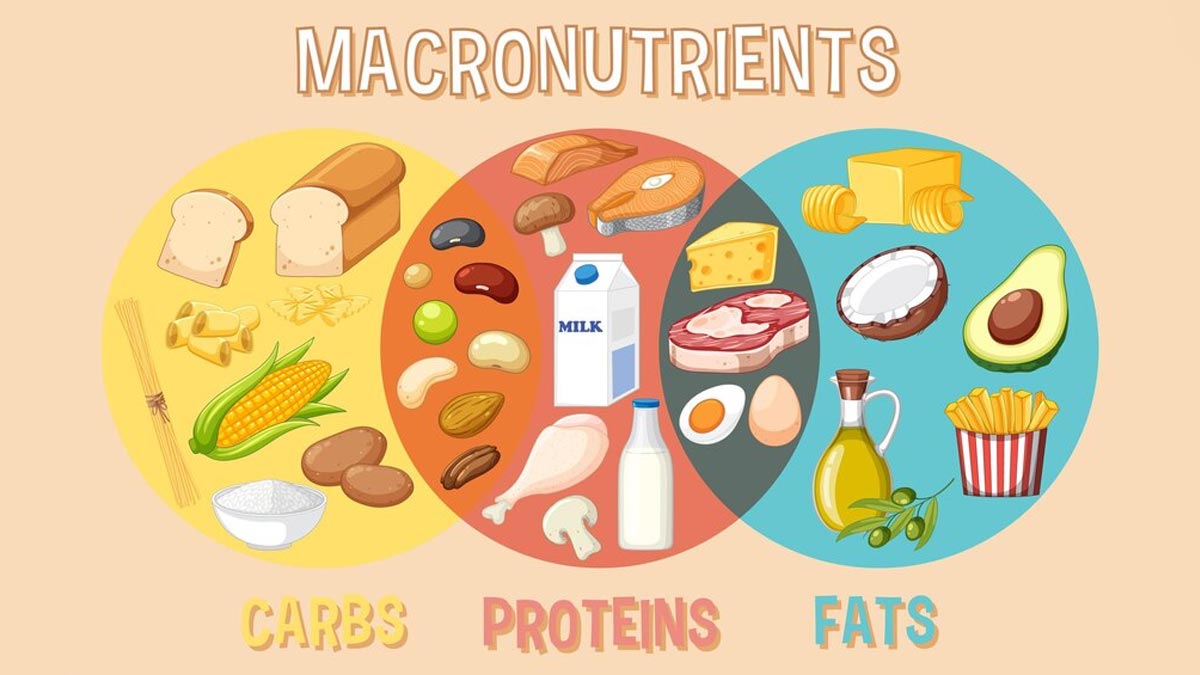
Have you ever wondered about the importance of macronutrients in your diet? When it comes to promoting overall health, they play a key role. Macronutrients, as the name suggests are essential nutrients that the human body requires in relatively large quantities to function properly. We spoke to our expert Dr Sanjay Singh, General Physician, Cygnus Laxmi Hospital, Varanasi, who explained these nutrients and their importance in maintaining overall health.
Dr Singh said, “There are three primary macronutrients: carbohydrates, proteins, and fats. These nutrients provide the body with energy and are essential for various physiological processes.” To ensure a long and healthy life, it is essential to have a mix of these macronutrients in our diet, as stated by the Multidisciplinary Digital Publishing Institute (MDPI).
Role of Macronutrients and Their Importance

Carbohydrates
“Carbs are the body's primary source of energy. They provide quick energy for various activities and support brain function”, said Dr Singh. Whole grains, fruits, and vegetables are good sources of complex carbohydrates, which also provide fibre for digestive health.
Proteins
Proteins are the building blocks of the body. They are essential for growth, tissue repair, and the synthesis of enzymes and hormones. Dr Singh added, “Consuming a variety of protein sources, such as lean meats, fish, beans, and legumes, is crucial for maintaining muscle mass and overall health.”
Fats
“Dietary fats are essential for energy, the absorption of fat-soluble vitamins, and the maintenance of healthy cell membranes”, added Dr Singh. Healthy fats, like those found in avocados, nuts, and olive oil, should be included in your diet, while trans fats and excessive saturated fats should be limited.
Also Read: The Role of Macronutrients in Your Diet: Protein, Carbs, and Fats
Tips To Include Macronutrients In Your Diet
“A well-rounded diet that includes a balance of macronutrients is crucial for overall health and well-being. It provides the energy and nutrients your body needs to function optimally”, said Dr Singh.

Balance Your Plate
Dr Singh underscores the importance of creating balanced meals. He said, “A balanced meal should include a combination of all three macronutrients. For instance, a meal might consist of lean protein (chicken or tofu), complex carbohydrates (e.g., brown rice or quinoa), and healthy fats (olive oil or nuts).”
Choose Whole Foods
Opt for whole, unprocessed foods as they provide a wide range of nutrients and are generally healthier choices. Whole foods not only offer essential macronutrients but also a variety of important micronutrients that support your well-being.
Portion Control
Did you know even healthy foods can lead to weight gain when consumed in excess? Dr Singh highlighted, “You should be mindful of portion sizes to avoid overconsumption. Controlling portion sizes helps you maintain a healthy weight and ensures that you're getting the right amount of nutrients.”
Also Read: 7 Tips to Check and Control Your Portion Sizes In Every Meal

Variety is Key
Dr Singh added, “You should incorporate a variety of protein sources, carbohydrates, and fats into your diet to ensure you receive a broad spectrum of nutrients. Different foods provide different nutrients, so incorporating diversity into your meals can help you cover all your nutritional needs.”
Read Labels
Dr Singh said, “Familiarise yourself with food labels to understand the macronutrient content of packaged foods. Look for items with lower added sugars and unhealthy fats.”
Consult a Dietitian
If you have specific dietary goals or health concerns, consider consulting a registered dietitian who can help you create a personalised nutrition plan.
[Disclaimer: The information in this article is shared by a registered healthcare professional and is for informational purposes only. Hence, we advise you to consult your expert for a dietary plan tailored to your needs and body type.]







